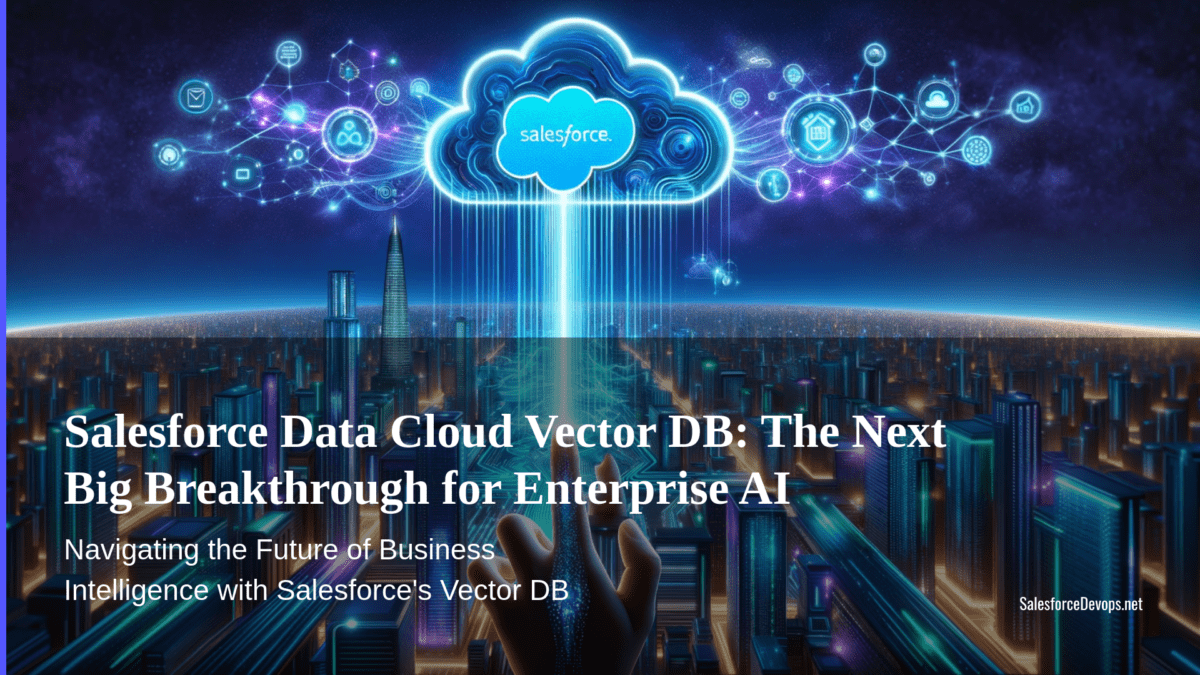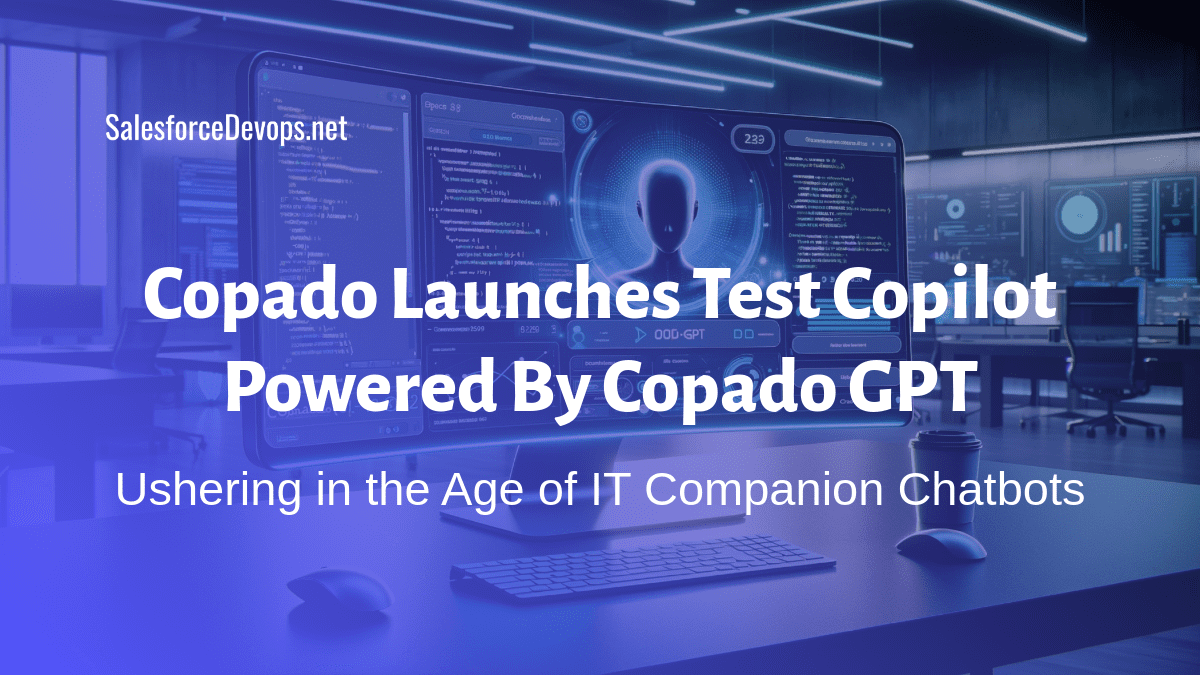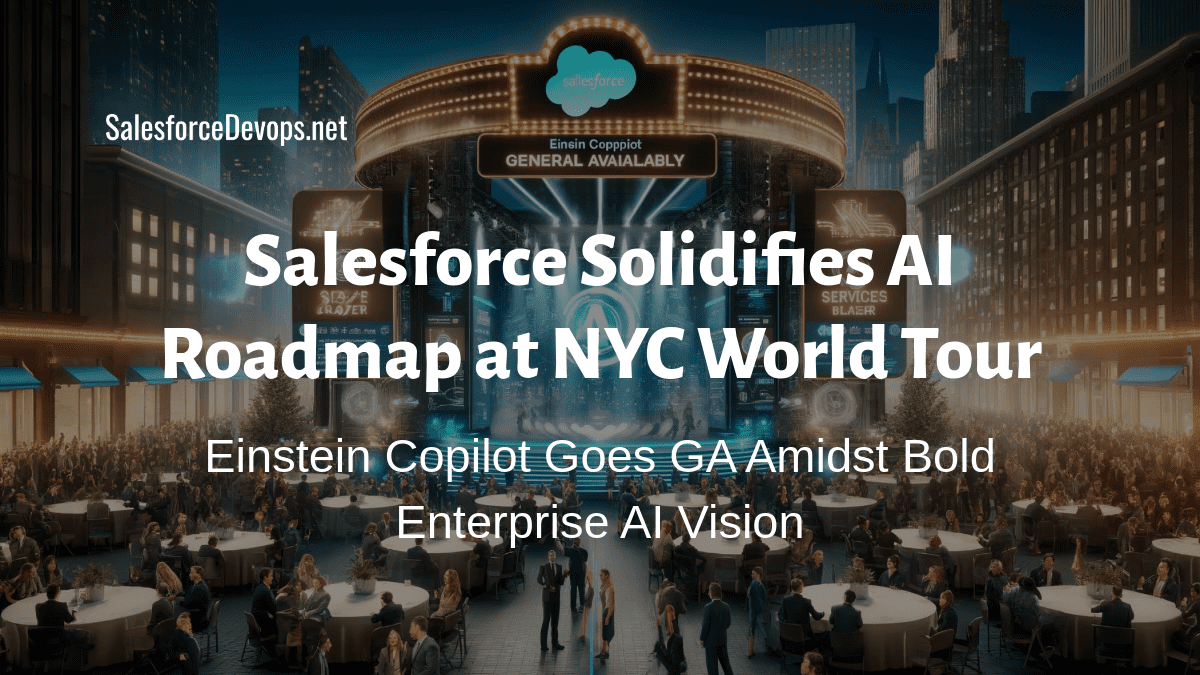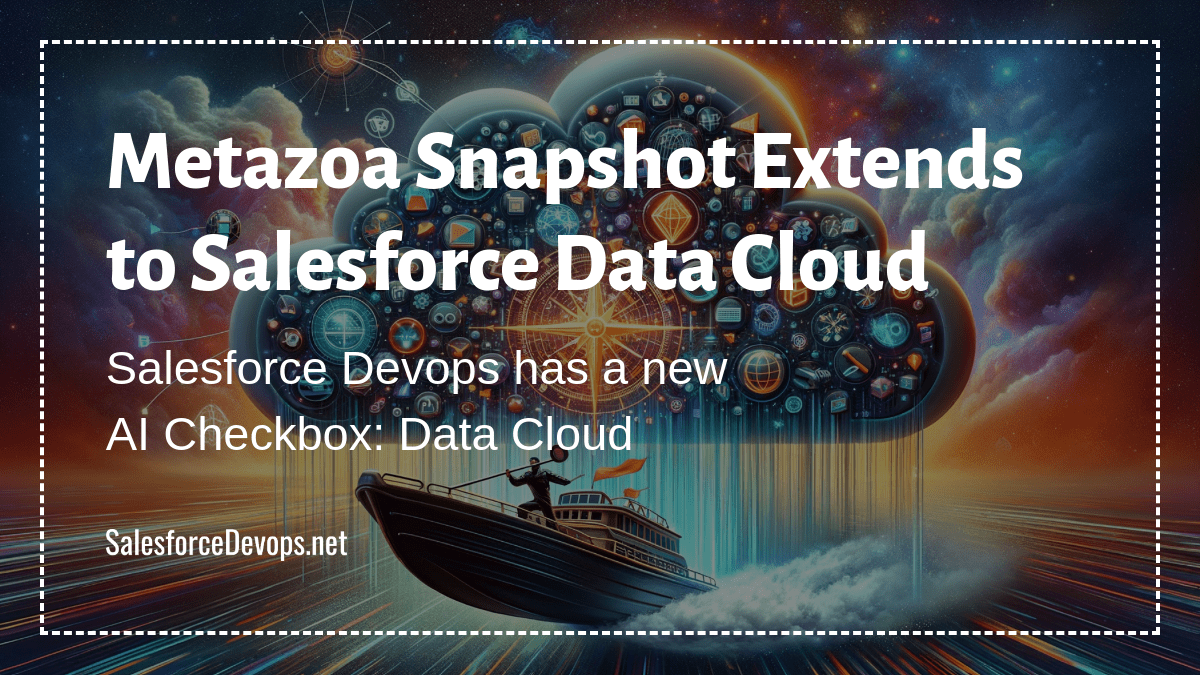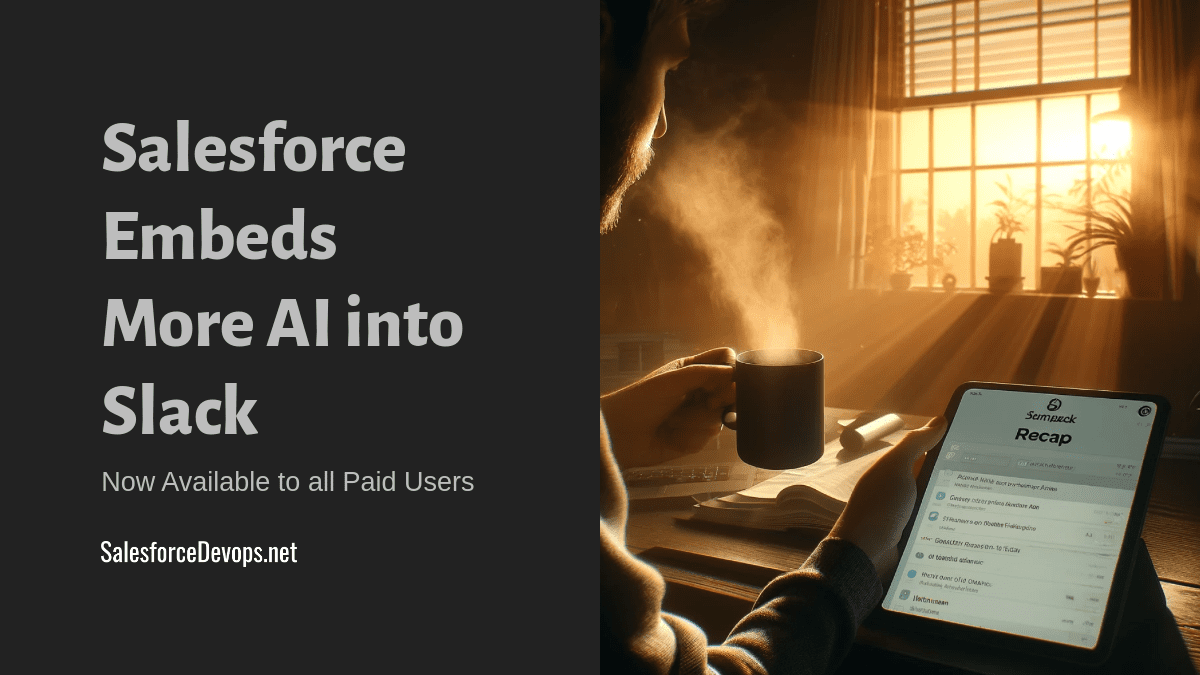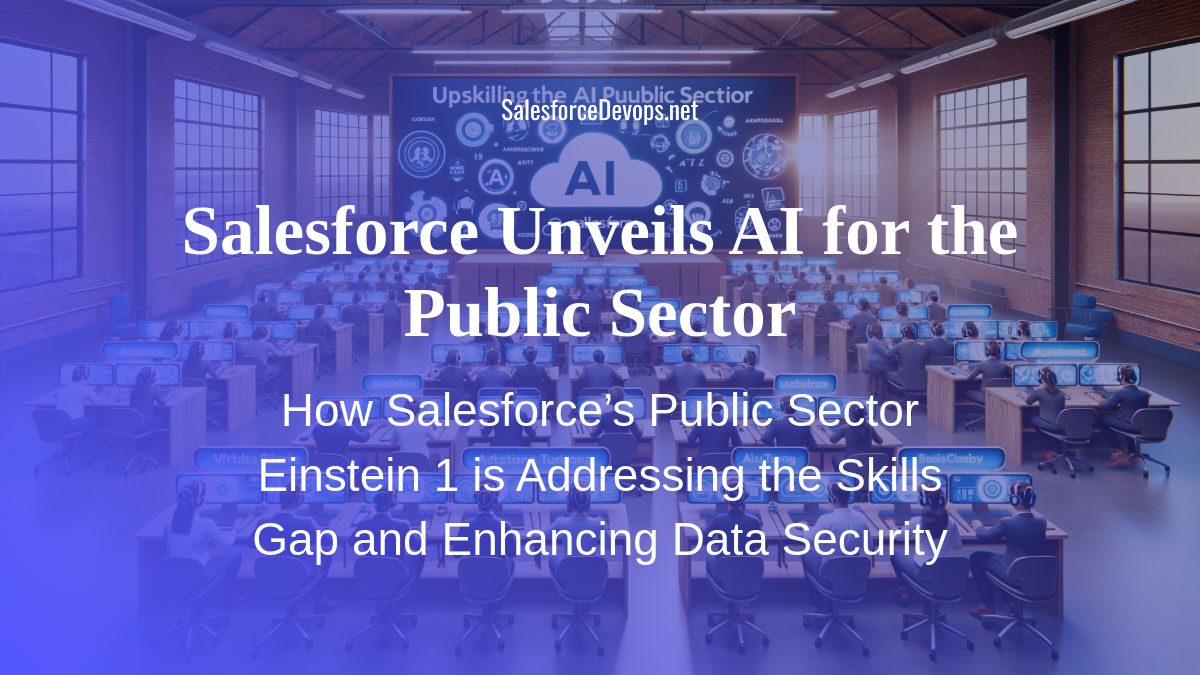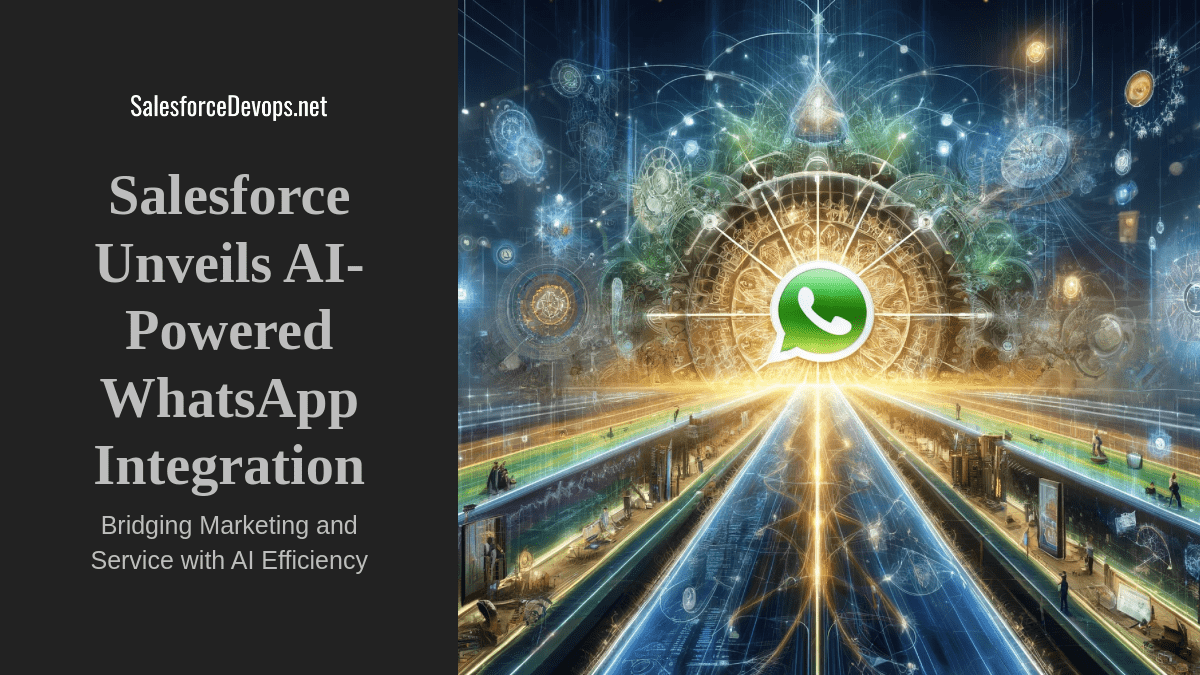Salesforce Data Cloud Vector DB: The Next Big Breakthrough for Enterprise AI
At today’s World Tour NYC event, Salesforce unveiled Data Cloud Vector Database, a Retrieval Augmented Generation (RAG) AI engineering service. This innovation promises to embed semi-structured and unstructured data like documents, emails, audio transcripts, and more to ground accurate AI prompts across the Salesforce platform. It’s a cutting-edge capability that directly addresses calls from industry experts to create enterprise AI that can reason over nuanced data in contextual, trustworthy ways.
Tech giants Microsoft and Amazon also recently showcased major upgrades to their respective RAG capabilities. Salesforce’s latest moves puts it back in front of the Enterprise AI perception race.
“Data Cloud Vector Database will remove the need to fine-tune LLMs by seamlessly using all business data to enrich AI prompts, allowing customers to use a variety of data types across their business applications and workflows,” explained Rahul Auradkar, EVP & GM of Unified Data Services & Einstein at Salesforce, in an interview with SalesforceDevops.net.
Table of contents
Doubling Down on Trust and Relevance
Salesforce’s emphasis on trust and relevance with this release contrasts with its big tech rivals. At their recent conferences, both Microsoft and Amazon focused augmented writing pitches on productivity gains.
However, these promises risk overpromising and underdelivering if foundational language models still cannot interpret unique industry data accurately. For example, at Ignite Microsoft demonstrated more conversational integrations between Copilot and Teams/Outlook to aid employee collaboration and efficiency. But it means little if Copilot’s recommendations around meeting scheduling, document reviews, etc. misinterpret the context badly.
Without credible strategies to unify, embed, and contextualize the volumes of unstandardized enterprise data, big tech RAG offerings seem more promotional than practical for now.
Meanwhile, Salesforce is doubling down on relevance by pioneering an approach to encode enterprise data at scale – both structured CRM records and unstructured content spanning documents, emails, transcripts and more. With embedded enterprise vectors fueling each prompt, Einstein Copilot can reason reliably over real customer contexts.
Augmenting Copilot Search and Insights
With unified data powering its prompts, Salesforce also unveiled Einstein Copilot Search at World Tour. This upgrade promises to aid customer service, sales, marketing, and more by interpreting complex requests and generating thoughtful responses citing accurate data sources.
According to Auradkar, “Einstein Copilot Search can understand and address complex queries by accessing insights and knowledge previously unattainable with foundational LLMs due to limitations in their training data.”
So rather than blindly repeating regurgitated web factoids, Einstein Copilot becomes capable of some deeper investigation. It can surface original insights by searching for industry knowledge, current opportunities, past campaign metrics, support ticket histories – even parse meaning from conversations.
Early enthusiast Shohreh Abedi of AAA praised how unified customer data helps Salesforce AI now “distill complex insurance policies into swift, customer-centric responses. This hints at the technology’s potential to transform enterprise AI utility.”
The Bigger Picture
Stepping back, Salesforce’s creativity and commitment advancing RAG once again seems a step ahead. While big tech scrambles to jam conversational AI into everyday business apps for splashy announcements, Salesforce is quietly doing the legwork to enable reliable, helpful AI.
Its vector database builds the backend data integrity to ground prompts. Copilot Search then becomes an intelligent portal – not just regurgitating facts but exploring enterprise knowledge graphs enhanced by semantic data embeddings.
This strategy promises to accelerate Salesforce’s enterprise AI capabilities dramatically over competitors still struggling with inaccurate outputs. And its ongoing leadership earns customer trust.
Because while Microsoft and Amazon pitch hypothetical productivity gains, Salesforce is focused on real customer value. Its latest innovations enable AI that can finally understand industries, unlocking transformational organizational insights over time.
